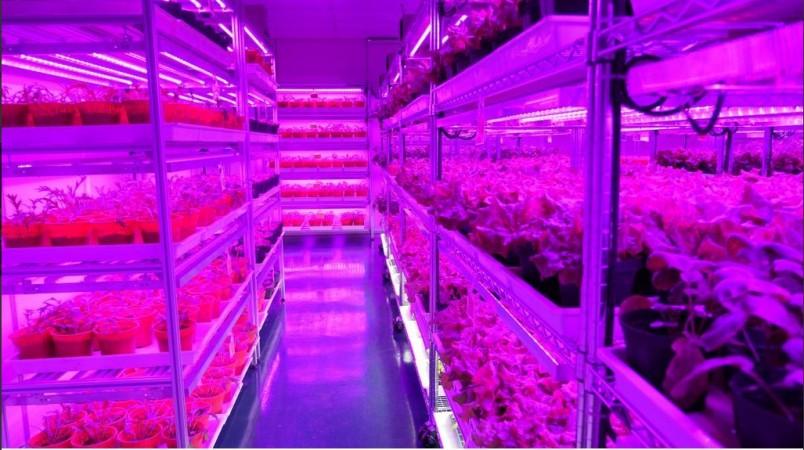
A unit of the electronics conglomerate Panasonic has started selling locally harvested vegetables to a chain of Japanese restaurants in Singapore, what it says as the first licensed indoor vegetable farm in the island, according to reports.
With a small production capacity of 3.6 tonnes annually, the Japanese firm has been producing a few premium Japanese crop varieties, including mini red radish, baby spinach, red leafy lettuce and mizuna (potherb mustard), under controlled and optimised conditions. The move ties Panasonic's deeper push into farming technology with land-scarce Singapore's ambition to reduce its near-total reliance on food imports.
The company recently posted on Twitter, their vision of driving self-sufficiency through a sustainable cultivation method.
Panasonic commits to boosting Singapore's self-sufficiency with its first licensed indoor vegetable farm pic.twitter.com/wKD0hSwmIW
— Panasonic Corp. (@panasonic) August 1, 2014
An average Singaporean consumes 16 kg of leafy vegetables and 78 kg of other vegetables every year, according to the chart. However, Singapore produces only 10.2 million kg leafy vegetables and 11.2 million kg other vegetables per annum, leading to import around 82 million kg leafy veggies and 419 million kg of other vegetables.
Panasonic anticipates that by 2030, Singapore's population would rise to 6.5 million, increasing the demand for vegetables to 104 million kg for leafy vegetables and 507 million kg of other vegetables.
The company targets to make a 5 percent contribution to the local production of vegetables by the fiscal year ending in March 2017, thereby saving up to 50 percent as opposed to premium import of Japanese production.
Panasonic said that Singapore, which is ranked by the World Bank as the second-most densely populated country and imports more than 90 percent of its food was ideal for its indoor farm due to the country's low food self-sufficiency and limited land.
As part of its efforts, Panasonic has provided some funding and research support to local vertical farming company Sky Greens, which grows leafy vegetables at its farm in three-storey high towers inside greenhouses. The farm currently has 600 such towers and intends to expand to 2,000 by next year and can currently produce up to one tonne of vegetables a day.
"We foresee agriculture to be a potential growth portfolio, given the global shortage of arable land, climate change and increasing demand for quality food as well as stable food supply," Hideki Baba, managing director of Panasonic Factory Solutions Asia Pacific, told Reuters.
Indoor farming has found favour with other hi-tech Japanese companies as well. On 5 July 2013, Fujitsu Ltd had announced on their website the plan to start trials of the Japan's largest low-potassium plant factory. "Through this field trial, the consortium aims to cultivate low-potassium leaf lettuce that can be eaten raw by dialysis patients and people with chronic kidney disease," the report read.
In September 2013, Japanese multinational Sharp Corporation made forays into the horticultural industry by capitalizing on growing strawberries in the deserts of Dubai, Bloomberg Businessweek reported.
Panasonic's 248 square-metre farm is located inside a factory building on the outskirts of the city, where standard fluorescent lighting gives way to a pinkish-purple glow from LED lights brought in to nurture the plants. The company restricts visitors to maintain the controlled levels of temperature, humidity and carbon dioxide.

















